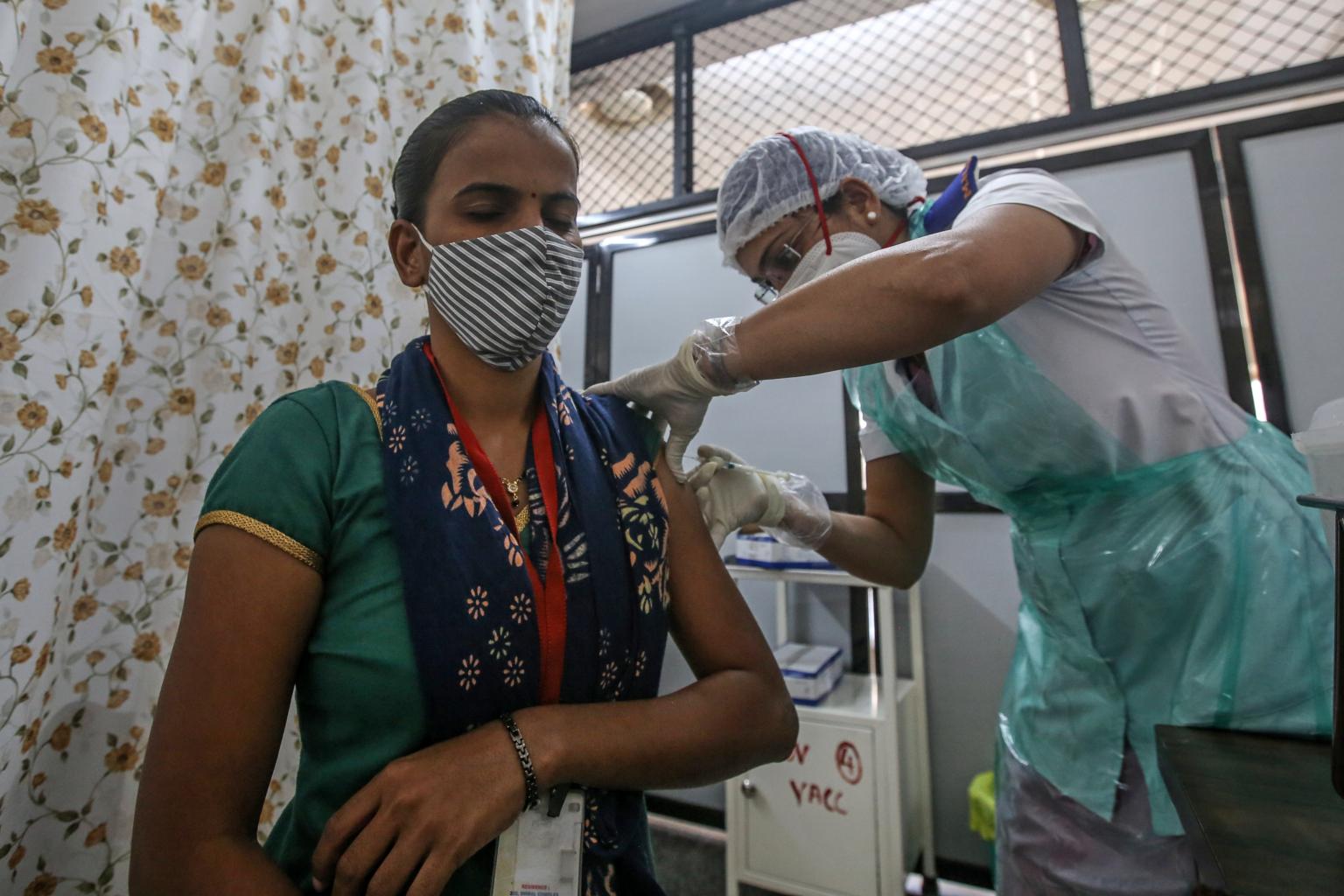India doubles spending on healthcare in annual budget
Sign up now: Get ST's newsletters delivered to your inbox

India currently spends about 1 per cent of GDP on health, among the lowest for any major economy.
PHOTO: EPA-EFE
Follow topic:
NEW DELHI - Finance minister Nirmala Sitharaman doubled healthcare spending to Rs 2.23 trillion (S$40.62 billion) in the annual budget which contained a strong push for spending on infrastructure to kickstart the economy and guide it out of the shadow of Covid-19.
Ms Sitharaman, who carried a tablet wrapped in a bright red envelope instead of the traditional ledger in the same hue, announced a massive 137 per cent increase in spending on health and wellness in a country where healthcare expenditure is among the lowest in the world at one per cent of GDP.
The finance minister announced that one or more Covid-19 vaccines could be expected soon even as she set aside Rs 350 billion for the vaccination programme and another Rs 641 billion set aside for a new federal health scheme over six years.
India has currently approved two vaccines.
"India has one of the lowest death rates of 112 per million population and one of the lowest active cases of about 130 per million. This has laid the foundation for the economic revival we see today," said Ms Sitharaman.
She also announced additional spending on infrastructure, including ports, roads, railways and power generation, to push for growth. Apart from boosting the infrastructure on health, the budget also allocated Rs 2.87 trillion for clean water supplies over the next five years, Rs 3 trillion for the power sector over five years and Rs 10 billion to the Solar Energy Corporation of India. Spending on roads and highways was Rs 1.18 trillion rupees. The finance minister also announced a new cess on a range of products including fuel and gold to fund agriculture infrastructure.
Another big takeaway from the budget was reform in the financial sector, which included an increase in the foreign direct investment (FDI) cap for the insurance sector to 74 per cent from the current 49 per cent.
Prime Minister Narendra Modi in an address to the nation vowed the budget would push growth.
"The Budget 2021 will spur growth and will give a boost to India's self-reliance. This has focused on strengthening ease of living."
Like many other countries, India is facing economic stress because of the Covid-19 pandemic with growth expected to contract by 7 per cent in the last financial year. The government has forecast 11 per cent growth for the current financial year.
India has witnessed a steady decline in infections over the past four months even though the risk of a resurgence, seen elsewhere, remains.
Other challenges facing the Modi government is the growing crisis of unemployment and an escalating farmers' protest against new laws on the selling of their produce. They want to retain the existing system of wholesale markets and middlemen.
The farm sector also received much focus with the government announcing Rs 1.7 trillion for paddy procurement.
Experts agreed that the budget was clearly aimed at growth and the market responded positively.
"The Budget prioritised investments over consolidation, evidenced by a strong supply-side push towards infrastructure, healthcare, push towards privatisation, lift in FDI cap, higher outlays for the farm sector and formation of specialised institutions," said DBS Group Research Economist Radhika Rao.
A key question mark remains however over government revenues with the fiscal deficit of 6.8% of gross domestic product predicted for 2021/22.

